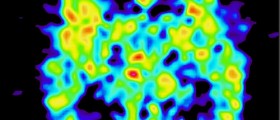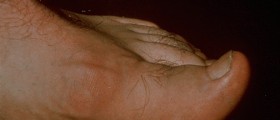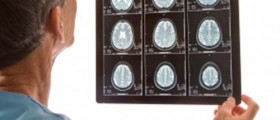
When a person has calcium deposits in the brain, it can lead to a lot of different symptoms which can range from mild headaches to several mental problems and disabilities.
The condition is sometimes called cranium calcification and this occurs when small spots of calcium accumulate in the brain. These deposits show up as white spots all around the brain and on every single part of the organ.
Calcium deposits in the brain are small spots of mineral and they can occur in many places within the brain.
Their medical significance can sometimes be absolutely benign, but also very severe in some cases, with regard to the processes that naturally go on in the brain. The seriousness of the problem usually depends on where they are and how many of them there are. In some cases, such deposits can be associated with specific medical disorders that may need to be treated separately in order to get rid of these potentially harmful deposits.
This syndrome occurs when mineral calcium in the body travels out of the blood and into the central nervous system fluid. Simply put, the calcium deposits in the brain occur when the calcium in the blood in not properly absorbed into the body.
It is actually a fairly common condition, though rarely reported.
It can lead to sever brain function problems and chronic health problems as well.
Causes
Toxoplasmosis is one cause of calcium in the brain. This is a parasitic infection that is called by parasites found in cat feces and it is rare and usually does not affect healthy people, but can affect those that have weak immune systems.
The infection is one of the main causes of calcium deposits in the brain and can lead to major damage of the brain and eyes.
Meningioma is a tumor that can develop on the outer lining of the brain and can lead to the calcification of the brain. Calcium deposits often occur on these tumors and can contribute to developing severe brain aneurysms.
An aneurysm is another cause of calcification. When it occurs, there will be a weak spot developed on the brain that will cause a enlargement of blood vessels and eventually lead to calcification.
Symptoms
The symptoms of brain calcification can vary from mild to severe disabilities.
The symptoms include a slow but steady mental deterioration and dementia, a loss of motor skills, spastic paralysis, athetosis, and twisting movement of the extremities.
Some other symptoms include optic dystrophy, blurred vision, ear infections, tremors, muscle cramping, mask-like facial expressions, irregular, uncontrollable movements, seizures, and other mental problems.Treatment
The treatment will always depend on the underlying cause of the calcification.
The doctor will first perform general tests that will determine a persons alertness, coordination, reflexes, responses, and will do x-rays, CT scans and MRI’s of the brain in order to form a proper diagnosis.
The treatments usually involve anticoagulant therapy, surgical excisions of the calcium deposits, and anti-inflammatory medications.
As far as supplements are concerned, Calcium, Magnesium and Vitamin D should all be taken. It is important to take all of them because each is beneficial in its own way for fighting brain calcification.

















Your thoughts on this
Loading...